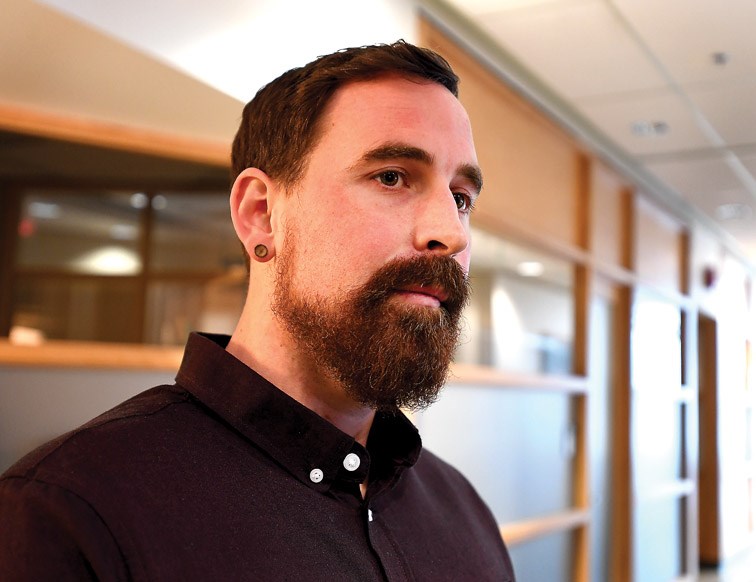What began with a simple moose-hunt along a stretch of Highway 16 has developed into a national campaign to raise awareness of violence against women and children.
The Moose Hide Campaign, which began as a small series of gatherings in 2011, has grown to a national grassroots movement. As part of the campaign, indigenous and non-indigenous men gathered on Thursday at UNBC for a full day event addressing domestic violence in northern communities. Similar gatherings were held in Prince Rupert, Smithers, Vancouver and in Victoria, with Premier John Horgan in attendance.
Justin Foster, the aboriginal student life navigator at UNBC's First Nations' Centre, said the campaign has sparked a national conversation about the role of men in ending violence against women and children.
"Men, primarily, are encouraged to, if they can and are able to, fast on February 15th, on the Moose Hide day gathering," Foster said.
"Men and women wear the pin to acknowledge the existence of violence against women and children, and to commit their efforts to ending that violence."
The campaign was started by Paul Lacerte and his daughter Raven after a moose-hunting trip in northern B.C. The two had been moved by the death and disappearance of women along the so-called Highway of Tears.
Raven began cutting small squares out of the hide of a moose and distributing them to men as a way of starting a conversation about violence.
Many of these issues have particular resonance for First Nations people in northern B.C. The event at UNBC included a session addressing the over-representation of indigenous people within prisons in the region.
The session featured Christina Draegen, northern regional manager of the Native Courtworker and Counselling Association of B.C., as a speaker. She has been working to establish a First Nations-centric court system in Prince George.
"When you're in the criminal justice world and you're looking at the various forms of offences that show up as criminal charges, many of those charges are related to violence," Draegen said, following her presentation.
Draegen believes the causes of violence are complex, but also involve issues that have a distinct social component as well. Many individuals charged with criminal offences often have undiagnosed mental health conditions or suffer from fetal alcohol spectrum disorder. These health-related challenges are often not addressed within the criminal justice system. The First Nations court will apply an aboriginal perspective to sentencing, with a focus on healing and rehabilitation instead of punishment.
"Those that are willing to partake will have wrap-around services by community stakeholders to help them achieve their goals of change. It's in the shifting, and the change, where the hope is that the cycle of becoming involved in the criminal justice world will stop. And that will address the over-representation that's in existence right now," Draegen said.
The First Nations court will hold an official opening ceremony at 10 a.m. on Friday, March 23 at the Civic Centre.


